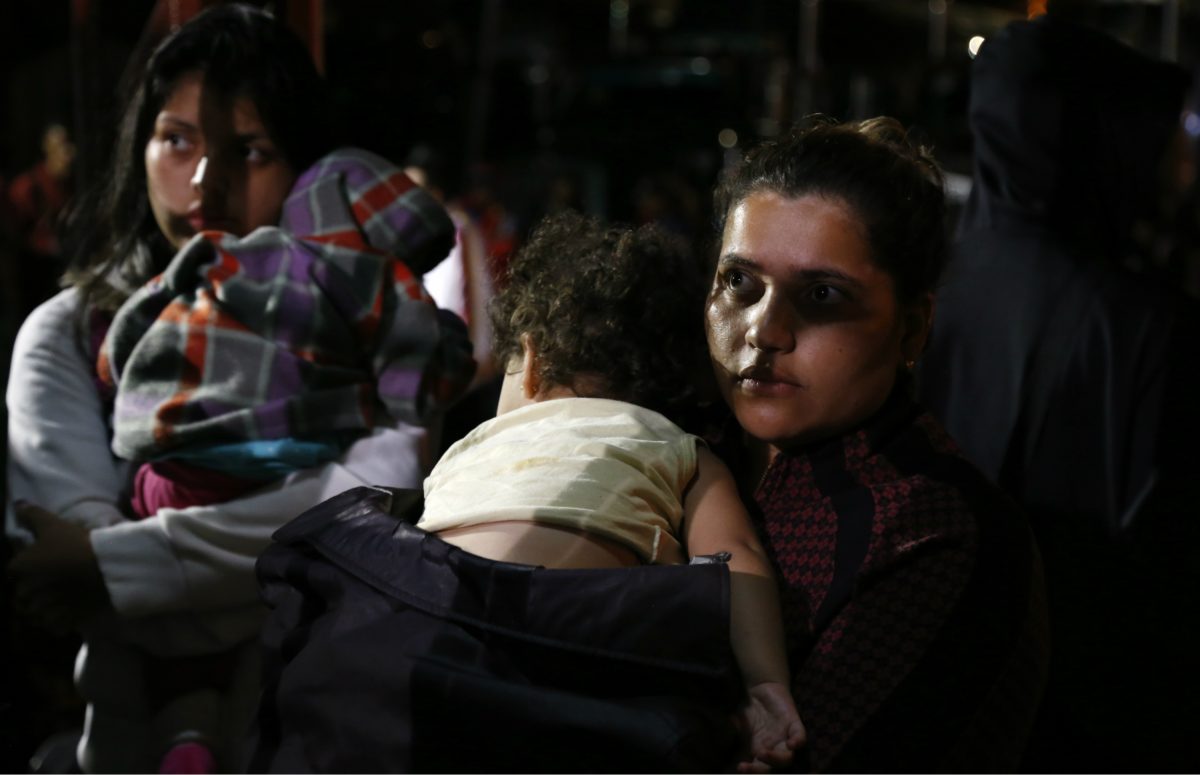






During the Organization of American State´s 48th General Assembly, which ended last Tuesday, the situation in Venezuela was a hotly debated issue. Over the past few years, the progressive erosion of democracy, political persecution and repression, the breach of democratic checks and balances, and systematic violations of human rights have catalyzed an economic crisis resulting in food and medical shortages. This has prompted many to flee the country.
Among those who have fled is Ana, a Venezuelan activist, who migrated to the Dominican Republic after she had exhausted all economic opportunities in her home country and Carlos, a human rights defender who left his country for fear of persecution and risk to his life and now lives in Peru. In addition to the causes of migration already mentioned, lack of food and health services are among the triggering factors for these displacements.
Like Ana and Carlos, almost two million Venezuelans have been forced to migrate across the region for similar reasons. However, as detailed at a hearing at the Inter-American Commission on Human Rights´ 168th Period of Ordinary Sessions, their departure from one crisis situation is promptly turning into a series of additional vulnerabilities within arrival countries: “We want to make it clear that if we could return to Venezuela, we would,” said a Venezuelan migrant in her presentation, “but that is not possible at this moment or in the near future. We want a temporary residence permit.”
Without proper documentation, threats of deportation and lack of access to work permits are all too common in the lives of many migrants like Ana and Carlos, who arrived in their host countries due to economic convenience and cultural proximity. Unfortunately, due to the conditions in Venezuela, many did not have access to their legal documents prior to leaving. In addition, it can take anywhere from months to years, if ever, to get passports from Venezuela due to ongoing bureaucratic and legal tangles spurred by the crisis. The lack of identity documents could put thousands of people at risk of statelessness.
If receiving countries like Chile, Colombia, the Dominican Republic, Ecuador, Brazil and Peru do not give migrants viable routes to legal residency, and continue to require documents that are nearly impossible to acquire, migrants are left with no choice but to stay in the receiving country without papers. This in turn limits their economic opportunities and leaves them with the constant fear of being deported. Venezuelan activists found out in 2018 that the Dominican Republic had begun to deport Venezuelans. Furthermore, after a Venezuelan woman presented her story before the IACHR hearing, she was detained at the Dominican-Haitian border and sent to a center for 24 hours. Although she was released, her detainment is an example of one of the patterns of behavior faced by many migrants who seek to make a life outside of Venezuela. Worse yet, many Venezuelans simply are not even be able to access another country due to barriers enforced by authorities.
The forced migration of millions from Venezuela is a regional challenge and humanitarian crisis. Yet, could also be an opportunity for coordinated regional solidarity looked at through a human rights lens. As such, a joint effort by member states of the OAS to protect the rights of forced migrants from Venezuela must be implemented. A potential action plan could include, among other things, improved information on the flows of migrants, directing funds to reviewing legal frameworks and coordinating efforts between different stakeholders and actors to address the needs of migrants to ensure their rights, and implementing global pacts on migration.
Furthermore, these efforts need to include the voices of Venezuelans on the ground. Activists like Ana and Carlos, who now work with national organizations in Santo Domingo and Lima to provide accompaniment to Venezuelan migrants at risk of deportation, are leading the way in the fight for the rights of migrants. In their own words: “If the Venezuelan immigrant does not organize, then they are lost.”
Moreover, other countries in Central America are experiencing a similar sort of systemic institutional erosion and social deterioration. It is important to remember that regional human rights frameworks, when done right, can apply to all migrants regardless of their status, improving a receiving country’s capacity to say: I Welcome You.
Unfortunately, for Venezuela this is an issue that will only get worse, as the UNHCR predicted the number of migrants will increase after Venezuela´s recent elections. The need for responses is urgent. Thus far, the OAS closed its General Assembly with a resolution on Venezuela which instructs “the Permanent Council to identify, in coordination with the relevant inter-American and international institutions, the appropriate measures to support the member states that are receiving an increasing number of Venezuelan migrants and refugees.” How this piece of the document will be implemented remains to be seen.
*Names of the victims have been shortened to protect their identities.
By Francisco Quintana, Program Director for the Andean, North America and Caribbean Region for the Center for Justice and International Law, CEJIL; With contributions from Alexandra McAnarney, Director of Communications, CEJIL and Soledad Slowing-Romero, Intern.
Help us continue this critical and urgent work with a donation!
DONATE NOW